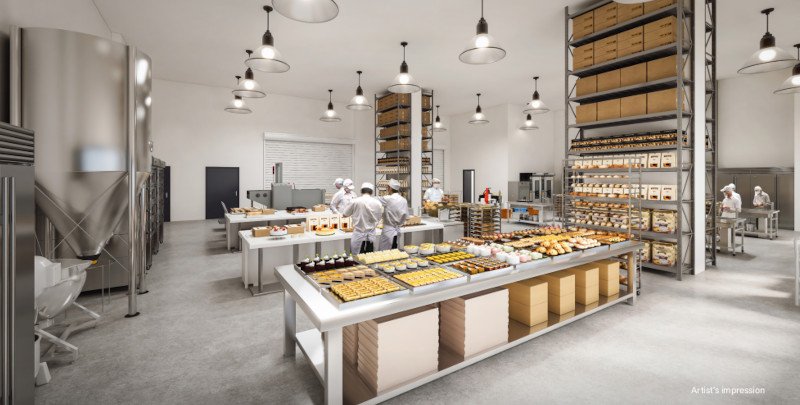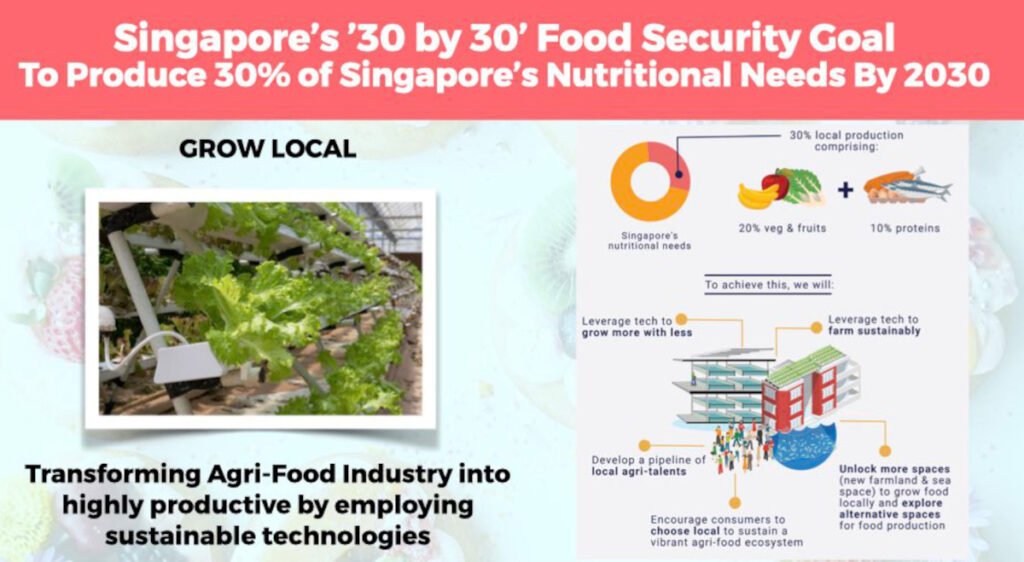In the heart of one of the world’s most densely populated cities, Singapore, lies an innovative solution to urban sustainability challenges: Food Factory Singapore. This visionary project is more than just a leap into the future of food production; it’s a comprehensive ecosystem designed to address food security, sustainability, and education in an urban setting.
Food Factory Singapore represents a bold step forward in the quest for sustainable urban living. By integrating technology, community, and education, it offers a holisticapproach to solving some of the most pressing issues of our time: food security, environmental sustainability, and urban resilience. This initiative highlights Singapore’s commitment to innovation and sustainability but also serves as a model for cities worldwide.
The success of Food Factory Singapore lies in its ability to demonstrate that urban spaces can be transformed into productive, green, and liveable environments. It challenges the traditional notions of agriculture and food production, proving that with the right technologies and community involvement, cities can become self-sufficient in food production.
The Genesis of Food Factory Singapore

The concept of Food Factory Singapore emerged from the pressing need for sustainable urban food solutions in the face of limited land resources and the growing threat of climate change.
Recognizing these challenges, Singapore embarked on a mission to revolutionize food production through technology, innovation, and community involvement. Food Factory Singapore stands as a testament to this commitment, aiming to enhance food security and to create a model of sustainability that cities around the world can emulate.
Sustainable Food Production Units: The Backbone of the Initiative
At the core of Food Factory Singapore are its sustainable food production units, which employ state-of-the-art technologies like hydroponics, aquaponics, and vertical farming. These methods drastically reduce the space needed for farming but also conserve water and eliminate the need for harmful pesticides. Solar panels and renewable energy sources power these units, further reducing the carbon footprint of food production.
Solar-Powered Greenhouses
These greenhouses harness the tropical sunlight of Singapore, converting it into energy to power the growth of a variety of crops. The controlled environment ensures optimal growth conditions, maximizing yield while minimizing resource usage.
Vertical Farms
Vertical farming takes the concept of space efficiency to new heights—literally. By stacking growing trays vertically, these farms produce significantly more food per square meter than traditional farming methods, all while using less water and energy.
Research and Development Centers: The Heart of Innovation
Innovation is at the heart of Food Factory Singapore, with dedicated research and development (R&D) centers focusing on advancing food technology and sustainability. These centers collaborate with global experts to pioneer new methods of food production that are both efficient and environmentally friendly.
Food Technology Labs
The labs are where scientists work on enhancing the nutritional value of food, improving taste without compromising on sustainability. They explore everything from genetically modified crops that require fewer resources to grow, to alternative proteins that offer sustainable nutrition options.
Sustainability Research
Sustainability research focuses on reducing the environmental impact of food production. Projects include developing biodegradable packaging, recycling wastewater, and finding ways to reduce energy consumption in food processing and storage.
Lush Green Belts and Recreational Areas: The Green Heart of the Factory
Surrounding the production units and educational facilities are lush green belts and recreational areas. These spaces beautify the environment and also play a crucial role in biodiversity, acting as habitats for local flora and fauna. They provide a serene escape from the urban hustle, reminding visitors of the importance of preserving nature in cityscapes.
The Global Implication
As cities around the globe grapple with similar challenges of urbanization, climate change, and food security, Food Factory Singapore offers valuable lessons. The project exemplifies how urban areas can harness technology and community engagement to create sustainable and resilient food systems. It encourages cities to rethink urban planning and land use, emphasizing the importance of green spaces and sustainable practices in building the cities of the future.
The Road Ahead
Looking forward, Food Factory Singapore continues to innovate and evolve. Plans for expansion include integrating more advanced technologies, expanding educational programs, and enhancing community involvement. The goal is to meet the immediate needs of Singapore’s population but to continually push the boundaries of what’s possible in urban sustainability and food production.
As Food Factory Singapore developed such as Harrison Food, it remains a beacon of hope and innovation, inspiring cities and communities worldwide to take bold steps toward a sustainable future.
Government Initiative on 30 by 30: Securing Food Future

In the face of global challenges such as climate change and population growth, Singapore has embarked on an ambitious journey to transform its food sustainability landscape. The island city-state, known for its innovative approaches to urban living, has launched the “30 by 30” initiative, a bold plan aiming to produce 30% of its nutritional needs locally by the year 2030. This strategic move is not just a step towards self-reliance but a leap into the future of urban food production.
Singapore, with its limited land and resources, has historically depended on imports for over 90% of its food supply. The 30 by 30 initiative is a response to vulnerabilities exposed by global supply chain disruptions, emphasizing the need for food security. It reflects Singapore’s proactive stance on sustainability and resilience, setting a benchmark for urban centers worldwide.
Central to achieving this goal are innovative agricultural technologies such as vertical farming, hydroponics, and aquaculture. These methods are tailored to Singapore’s urban environment, maximizing yield in minimal space while conserving resources. The initiative not only aims to boost local food production but also to enhance the nutritional quality and safety of food, ensuring a healthier future for its residents.
Community involvement and education are pivotal to the 30 by 30 vision. Through public engagement and partnerships, Singapore is fostering a culture of sustainability, encouraging households to participate in urban farming initiatives and sustainable consumption practices.
Singapore’s 30 by 30 initiative represents a forward-thinking approach to food security and sustainability. It is a testament to the city-state’s resilience and innovation, offering valuable lessons on adapting to the constraints of urban environments while striving for a sustainable and self-sufficient future. As 2030 approaches, Singapore’s journey towards this ambitious goal continues to inspire and shape the global conversation on urban food production.